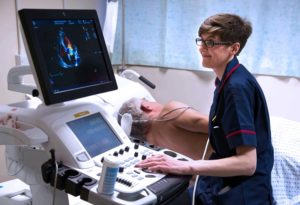Update on elective care plans
 Our main goal has been to see our patients safely through the challenges presented by the pandemic. We adhered to government guidelines and wherever possible continued to provide urgent non-COVID-related care and brought other elective services and clinics back as soon as safely possible. For example, we were the first NHS Trust in the country to restart routine cataract operations during the first wave of the pandemic in spring 2020.
Our main goal has been to see our patients safely through the challenges presented by the pandemic. We adhered to government guidelines and wherever possible continued to provide urgent non-COVID-related care and brought other elective services and clinics back as soon as safely possible. For example, we were the first NHS Trust in the country to restart routine cataract operations during the first wave of the pandemic in spring 2020.
Throughout the pandemic, the Trust has continued to treat all patients with cancer and those requiring urgent treatment. Many first patient consultations were conducted over the telephone, diagnostic services and reporting kept running, and the haematology ward was temporarily relocated from Stoke Mandeville Hospital to BMI Shelburne during both waves of the pandemic.
The Trust has since resumed many elective services and activity is now back above 70% of what it was before the pandemic, with outpatient activity back up to 90%. However, as in many other parts of the country, our overall waiting list has risen from 29,322 in March 2020 to just over 33,000 in March 2021.
This is why we are rapidly increasing routine services and treatments available to patients in order to ensure people are seen as soon as is safely possible. We are:
- Reopening and staffing all available operating theatres.
- Continuing to work with the independent sector – Nearly 700 longer-waiting patients in pain and trauma & orthopaedics will be invited for treatment at The Chiltern Hospital, with the Trust retaining clinical oversight.
- Expanding diagnostic services with the introduction of mobile scanning units as well by sourcing a private company to provide additional weekend support to endoscopy.
- Keeping the mobile operating theatre running at Stoke Mandeville Hospital to continue with cataract operations in this separate environment.
- Our clinicians regularly review patients who have been waiting for more than 78 weeks. In addition, patients are contacted to reassure them that they remain on our waiting list and to ask them to contact us if there has been a change in their condition so they can be reassessed to ensure that they don’t need more urgent treatment.
We recognise what a massive impact the pandemic has had on people and would like to thank the public for their continued patience and support.
